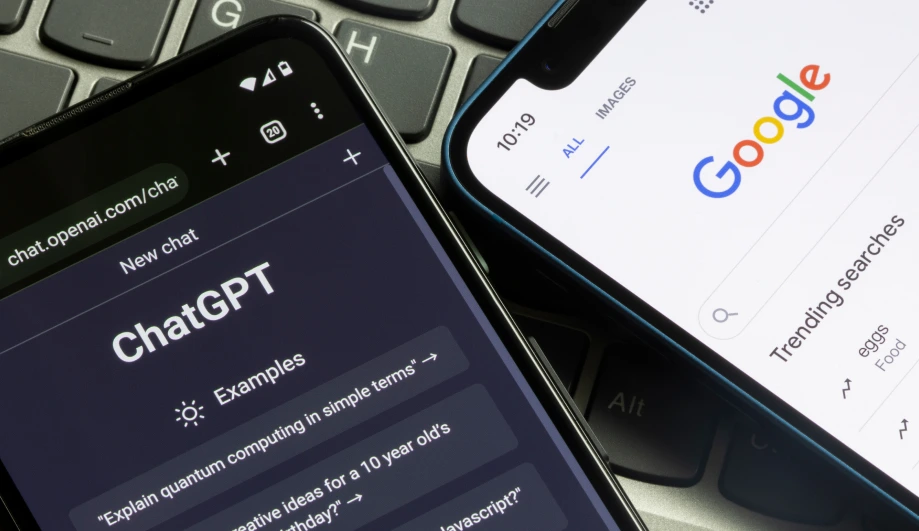
As a language enthusiast, I wasn’t too excited when AI tools like ChatGPT took the world by storm. I liked scanning catalogs of synonyms, scrutinizing their nuances to see which one best fit a sentence. Crafting essays, proofreading and transforming rough drafts into polished paragraphs, and juggling roles like sales representative, IT specialist, and researcher all in a single day were things I genuinely took pride in.
This is why I viewed platforms like ChatGPT as a potential threat to my creativity and employment. I didn’t expect the future where technology would encroach upon culturally significant jobs to be realized much sooner with bodiless, almost sentient AI systems.
Thankfully, I’m not out of a job—heh—and I’ve realized that AI has so far been more of a boon than a bane in my line of work.
More often than not, the files I edit follow a formulaic structure. For instance, my work on promotional copy tends to revolve around a few words—provide, offer, give, supply. Rarely do I encounter challenging projects that end up as head scratchers in the form of hard science research papers or creatively demanding content. When editing becomes a routine process of applying familiar techniques from a battered book rather engaging in original craftsmanship, AI tools are well-suited to take the reins.
From a practical standpoint, AI saves you time, energy, and money better spent on more demanding tasks. In our branch within the company, our nascent AI Translation and Postediting (ATPE) service is applied to projects involving Filipino and English. It features heavily in “proof of contact” projects, notorious for their repetitive use of everyday expressions such as “Have you eaten?” and “Good morning.” If Google Translate is smart enough to discern these expressions from gibberish—people tend to misspell and abbreviate them, mind you— why not let it take on the repetitive tasks? With the simple language of these expressions, I also realized that if something can be read and translated instantly, it’s worth translating manually.
If Google Translate is smart enough to discern these expressions from gibberish—people tend to misspell and abbreviate them, mind you— why not let it take on the repetitive tasks? With the simple language of these expressions, I also realized that if something can be read and translated instantly, it’s worth translating manually.
ATPE, along with templates, glossaries, and translation memories, eliminates redundant project orders for translation and reduces inconsistencies across projects and translators. What happens to the translators, you ask? They’re usually relocated to more challenging projects, freeing them from the repetitive nature of proof-of-contact tasks, which ironically tend to result in more errors when handled manually. In summary, these AI initiatives have so far enabled a faster turnaround of files and a better hold on quality.

Most people outside the legal profession struggle to replicate its formal, archaic language. Instead of browsing lengthy legal documents to find the proper expressions, ChatGPT can give you a decent outline in legalese or teach you how to word “Whereas” clauses. With its precise delivery of information, ChatGPT positions itself as a strong contender to succeed Google, saving users countless clicks and a visit to a Reddit forum.
At the end of the day, AI doesn’t and shouldn’t have the final say. ChatGPT or Google Translate is no match for our ability to translate even the most obscure and absurd cultural expressions. Editors can’t count on such platforms to diligently fact-check proper nouns as we do, adopt our inhouse style, or even understand supposedly foolproof prompts sometimes. Well, about the second point, we have successfully incorporated our stylebook into Grammarly, but there’s a long way to go before we can do the same for other platforms.
There’s no need to fear AI at work if you know how to use it to your advantage. Give it all the dirty work while you make your ingenuity shine. Have it translate hundreds of the same greetings while you localize the Filipino slang it hasn’t learned yet. Add a personal touch to its work. Use it as a guide, and don’t be indebted to its suggestions. When you relegate the routine and repetitive, you can reclaim creativity and relish in the craftsmanship of editing once again.
At Lexcode, we deliver outputs optimizing human translation and AI translation. Request a quote now at ph.lexcode.com to learn more about our translation and interpretation services for your multilingual needs!
Proofreading: How AI is changing the way I work